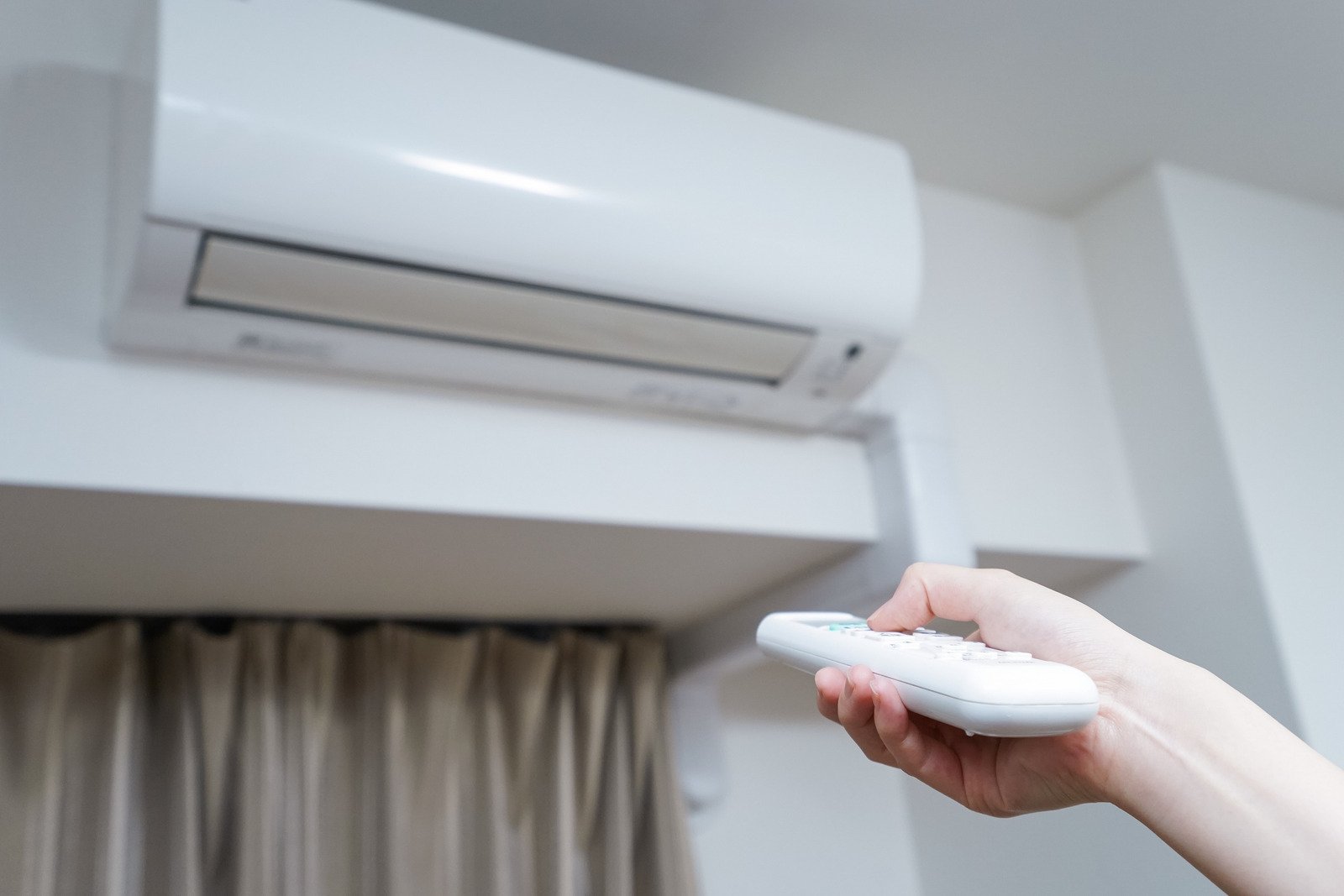Nothing’s worse than turning on your air conditioner on a hot day and realizing it’s barely blowing cool air. The good news? Most AC issues come down to a few simple problems — and many of them are easy to fix yourself. Here’s what could be going on and what you can do about it.

Quick Summary
- Change dirty air filters every one to three months for better airflow.
- Make sure your thermostat is accurate and placed correctly.
- Watch for refrigerant leaks — they can cause weak cooling or ice buildup.
- Keep outdoor coils clean so heat can escape properly.
- Check electrical connections and reset any tripped breakers.
Dirty Air Filters
If your AC isn’t cooling like it used to, start with the air filters. Dust and debris build up fast, especially during summer. When filters get clogged, air can’t move freely, which makes your system work harder and cool less effectively.
You might also notice higher electric bills or more dust in your home. Replacing or cleaning your filters every one to three months is one of the easiest ways to keep your AC running smoothly. It’s a small task that makes a big difference in comfort and efficiency.
Thermostat Issues
If the filters are fine, check the thermostat next. Sometimes the issue isn’t your AC at all — it’s the thermostat reading the wrong temperature.
Compare your thermostat’s reading to a regular room thermometer. If they don’t match, it might need recalibration or replacement. Also, make sure it’s not near a lamp, window, or heat source. Direct sunlight or warm air can fool the thermostat into thinking your house is cooler than it is.
Fixing this could be all it takes to get your cool air back.
Refrigerant Leaks
Low refrigerant is another common cause of weak cooling. The refrigerant is what absorbs heat from your home, so if there’s a leak, the system can’t do its job properly.
You might see ice on the coils, hear a hissing sound, or notice the air isn’t getting as cold as it used to. If you spot any of these, it’s best to call a technician. They can find the leak, fix it, and refill the refrigerant. Trying to handle refrigerant yourself isn’t safe or legal in most cases.
Regular tune-ups can help prevent leaks from happening again.
Blocked Condenser Coils
Your outdoor unit does a lot of heavy lifting — it releases heat from your home. But if the coils outside are covered in dirt, grass, or leaves, that heat gets trapped inside the system.
Take a look at your outdoor unit. If it’s dirty or surrounded by debris, shut off the power and gently clean the coils using a soft brush or coil cleaner. Keep about two feet of clear space around the unit so it can breathe. This simple maintenance step can make your AC noticeably more effective.
Electrical Problems
Sometimes cooling issues are as simple as a tripped breaker. Check your electrical panel — if a breaker’s flipped, reset it and see if your AC kicks back on.
If it trips again, or you notice damaged wires or burnt smells, stop there and call a pro. Electrical problems can be dangerous, and continuing to run the system could cause more damage. A technician can safely find and fix the issue.
Faulty Compressor
The compressor is the heart of your AC system — it keeps the refrigerant moving. If it fails, you’ll probably feel warm air from the vents or hear strange noises from the outdoor unit.
Unfortunately, compressor issues aren’t DIY fixes. Sometimes it’s a simple repair, but if it’s completely gone, replacing it can be costly. A technician can test it and tell you whether a repair or full replacement makes more sense.
Ductwork Issues
If your AC is blowing cool air but your rooms still feel warm, the problem could be in the ductwork. Cracks, leaks, or poor insulation in the ducts let cool air escape before it reaches your rooms.
A professional duct inspection can spot these leaks. Sealing and insulating ducts properly can improve cooling and save money on energy bills.
Improper Installation
If your AC has struggled since day one, it might not have been installed right. Common issues include the wrong system size, poor airflow setup, or incorrectly connected refrigerant lines.
Improper installation causes constant inefficiency — even if every part is in good shape. If your unit’s still underperforming after several repairs, have an HVAC technician check the setup. Fixing installation problems can often solve years of frustration.
Clogged Drain Line
Air conditioners don’t just cool air — they also remove moisture. That water drains through a small pipe, and if it gets clogged, it can back up and cause water leaks, frozen coils, or system shutdowns.
You can clear it yourself with a wet/dry vacuum or a mix of vinegar and water. Doing this once a month helps prevent algae buildup and keeps the system running smoothly.
Age of the Unit
Every air conditioner has a lifespan. Most last about 10 to 15 years before efficiency drops off. If yours is getting older and needs frequent repairs, replacing it might be more cost-effective than fixing it again.
Modern units are much more energy-efficient, so upgrading could save you money in the long run. Ask for a few quotes and compare options before making a decision.
Frequently Asked Questions
How often should I replace my air filters?
Usually every one to three months, depending on use and air quality.
Can sunlight affect my AC’s cooling?
Yes. If your outdoor unit sits in direct sunlight, it can run hotter and work harder. Adding shade can help it run more efficiently.
What are signs of a bad compressor?
Loud noises, weak cooling, or short cycling are common signs. Call a technician if you notice any of these.
How can I improve my home’s insulation?
Use better materials like spray foam or fiberglass to reduce heat transfer. Good insulation keeps your home cooler and lowers energy costs.
When should I replace my AC?
If it’s over 15 years old, keeps breaking down, or cools unevenly, it’s likely time for a new one.
Conclusion
If your AC isn’t cooling properly, start with simple fixes like changing the filter or checking the thermostat. Cleaning coils and making sure the outdoor unit’s clear can also go a long way.
But if you’ve tried the basics and your system still struggles, it might be time to call a technician. Regular maintenance and quick repairs not only keep your home comfortable but also extend the life of your air conditioner — saving you from bigger headaches down the line.

